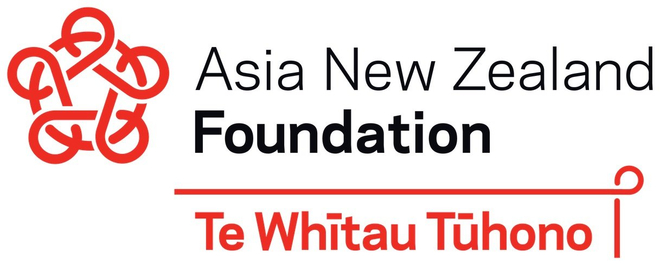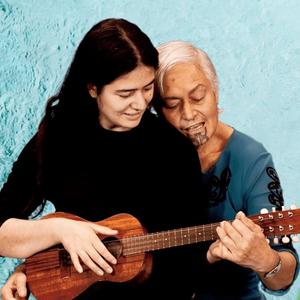Homing Instinct is a collaborative international programme of artist commissions related to home, shelter, and belonging. Three new moving image works have been commissioned from Kahurangiariki Smith (Aotearoa), Ari Angkasa (Australia), and Ananta Thitanat (Thailand). The new works will be joined by Aotearoa-based artist Dieneke Jansen’s This Housing Thing (2021), a work and practice which sparked this series of new commissions.
Homing Instinct is a film project developed in partnership between CIRCUIT, Composite (Naarm), Storage Art Space (Bangkok), and The Physics Room (Ōtautahi), with each organisation taking responsibility for a new commission developed in their local context.
Homing Instinct is a response to living in a time that requires not only redress of housing inequalities, but more expansive conceptions of housing-shelter-belonging. As increasing numbers of people are displaced through social and environmental forces, the exchange of stories around housing and home is both politically and personally necessary. As a whole, the project intends to foreground empathetic, courageous works about what home and belonging means in our respective contexts, and to assert the role of embodied, spiritual and psychological experience within any discussion of housing.
The three new commissions were selected following an open call by a curatorial panel comprised of Mary Pansanga, Sathit Sattarasart, Channon Goodwin, Mark Williams, and Abby Cunnane. The public launch will take place at The Physics Room in Ōtautahi Christchurch in July 2024, followed by screenings at Enjoy Contemporary Art Space, Te Whanganui-a-Tara; Composite, Naarm Melbourne; and Storage Art Space, Bangkok. The programme will subsequently be available to tour.
Programme
Ananta Thitanat, Siam (2024)
In Thailand, where the income gap between rich and poor is significant, many people live, eat and sleep in their places of work. In Siam, Ananta Thitanat asks her father about the stories behind the Siam Cinema, a commercial movie theatre located in central Bangkok which was their home for much of the filmmaker’s childhood. The cinema was destroyed by fire during an anti-government Red Shirt protest in 2010. Seeking to visualise her fragmented memories of her destroyed home the filmmaker creates a series of drawings, while on the soundtrack we hear her father’s recollections of their time spent living together at the theatre and how others' lives also revolved around the Siam.
Kahurangiariki Smith with Buntheun Oung, ~ Mā te Moana ~ (2024)
A land perhaps, or maybe just a motu
Perhaps a glimpse over the shoulder,
If you squint you’ll see it, the lands of our tūpuna
Is Hawaiki where we came from, or where we’re headed?
A descendant of Te Arawa waka, Kahurangiariki Smith has spent recent months learning about intersecting genealogical connections to the outer islands of Kuki ‘Āirani. Living in Rarotonga within swimming distance of where many ancestral waka departed for Aotearoa, she has been researching these connections, looking out to the same horizon and swimming in the same waters as her ancestors did. This narrative is held alongside the words of Buntheun Oung, who speaks of returning to his homeland of Cambodia. Film photographs documenting this journey are brought together with phone footage, and accompanied by chrome kaperua and takarangi. Sounds of waves crashing and karaoke nights with the aunties track the shifting of geography between Rarotonga and Cambodia. Where the tides push and pull, Buntheun and Kahurangiariki similarly respond to the push and pull of journeying to respective homelands.
Ari Angkasa, Quantum Leap (2024)
Quantum Leap is a first-time collaboration by performance artist Ari Angkasa with her sister and filmmaker Serena Arsletta. Through a satirical remaking of the airline safety video, Quantum Leap combines Angkasa's video collage and performance art practice in a two-channel film excavating the aviation industry's role as an arm of state in global political conflict. Extracting archival footage from the EU ban on all Indonesian airlines in 2005, and the series of aviation scandals plaguing the nation preceding it as a visual touchpoint, Quantum Leap sees Angkasa perform the unreliable narrator trope embodied in a flight attendant. With her hair in a French twist and a classic kebaya uniform cinching her waist, the film splits Angkasa into two flight attendant characters who speak different languages, to make sense of queerness, belonging, and her transitional dysphoria in the context of diaspora.
Dieneke Jansen, This Housing Thing (2021)
This Housing Thing contends with the complexities of inherited and lived experiences, in relation to ideals and aspirations. Narratives from the Netherlands and New Zealand are unpacked alongside socio-political observations, and the work oscillates between subjective to ideological positions throughout a narrative that is audible, internal, and unspoken. Flipping through family photo albums and scrolling through web footage, This Housing Thing hinges on the desire for housing security and access as a human right. Why this housing thing? Looking backwards to look forwards This Housing Thing reasserts the political and the personal as inseparable.
About the artists:
He uri nō ngā tūpuna i heke mai ai i runga i ngā waka o Te Arawa, o Tainui, o Mataatua, o Takitimu, o Horouta hoki, Kahurangiariki Smith is a Māori artist living in Aotearoa New Zealand. In recent years Kahurangiariki has been collaborating with her māmā, Dr Aroha Yates-Smith, a leading academic on the ancient Māori feminine. Kahurangiariki’s work explores her mother’s research and the many personifications of atua wāhine (Māori goddesses). She works to manifest these atua wāhine into a physical form, locating them in the present and in our futures. Sometimes playful, sometimes cheeky, Kahurangiariki’s work explores a range of media such as moving image, karaoke, 3D rendering, video games, neon and writing.
Ari Angkasa is an artist based in Naarm (Melbourne). Ari's work considers the liminal zones she inhabits in transitioning and in diaspora as time-less sites of release. Through her practice, Ari manipulates genre conventions of art, film, and theatre, to explore the notion of healing as existing solely on 'island time'. Ari's practice is a restorative process, a survival instinct in response to structural oppression. Ari's research work tracks the legacy of Western cultural neo-imperialism and aims to archive such impact through her artistic practice documented in a conscious framing of the body as cinematic medium. Ari's practice has spanned across moving image, performance, installation, and writing, and she utilises research methods from the Institutional Critique movement in art to synthesise the cultural trauma held in the body in relation to tangible structures of power. Ari has exhibited recent works with Immigration Museum, The Substation, and Gertrude Contemporary, and Seventh Gallery. In 2021, Ari was one of the inaugural recipients of Multicultural Arts Victoria (MAV)’s Diasporas Commissions. Ari is currently in production for How do I let you die?, a short film developed in part by the commission, premiering at Arts House as part of a hybrid theatre work of the same title written by Michele Lee.
Ananta Thitanat is a self-taught filmmaker and photographer with over 12 years of experience in documentary making. Ananta was born in Bangkok, Thailand and raised by a worker at Siam cinema. Ananta has participated in international forums and workshops including Docs By The Sea in Indonesia, and Yamagata Documentary Dojo in Japan. She gained recognition for her debut feature documentary, Scala, which was selected for multiple international film festivals and received critical acclaim. Scala premiered at the 72nd Berlin Film Festival's Forum section, and went on to screen at international film festivals including the International Documentary Film Festival Amsterdam, World Film Festival of Bangkok, and Hot Docs. The film was praised for its touching tribute to a disappearing way of life, its visually stunning cinematography, and its powerful storytelling, and won the EIDF Youth Eye Award at the EBS International Documentary Festival, the Grand Jury Prize at the 2022 World Film Festival of Bangkok, honorable mention winner in the Best Mid-Length Documentary category at the Hot Docs Canadian International Documentary Festival and Thailand National Film Association Awards 2022 for best documentary feature.
-1730186949.jpg)

